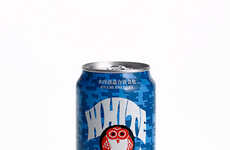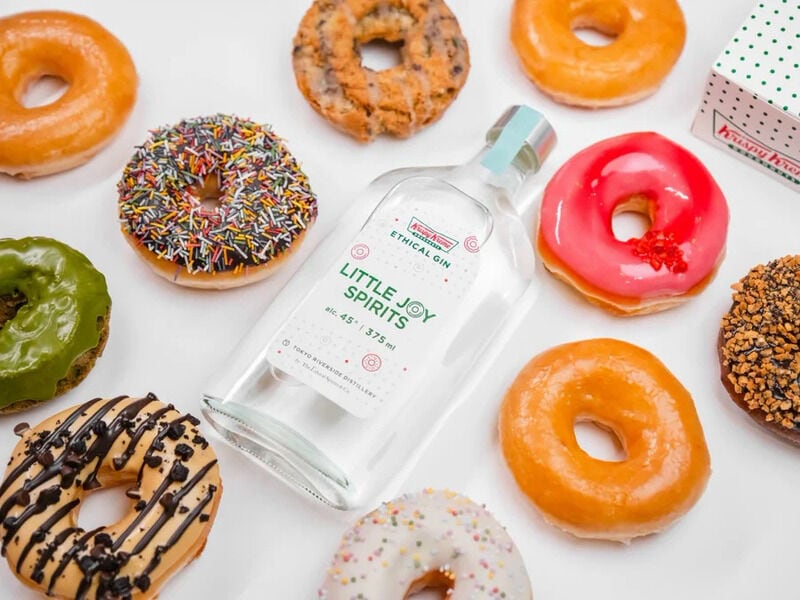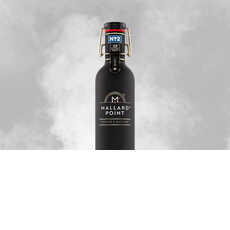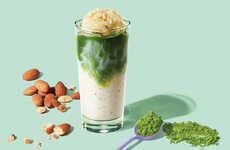
Krispy Kreme's Little Joy Spirits Tackles Food Waste
Laura McQuarrie — June 9, 2023 — Eco
References: shop.ethicalspirits.jp & soranews24
Brands are innovatively utilizing by-product and surplus ingredients to develop new, sustainable products that not only combat food waste but also promote a more environmentally friendly approach to production and consumption—and Krispy Kreme's Little Joy Spirits is a perfect example. This "ethical gin" was created with Japanese company Ethical Spirits and it makes the most of surplus dough and glaze from Krispy Kreme’s original glazed donuts. However, rather than distilling the raw ingredients as-is, the brands first baked them into biscuits and added the glaze to enhance the sweetness and aroma of the dough.
The biscuits and caramelized glaze were then distilled with other ingredients like Valencia oranges, juniper berries, angelica root, coriander seed and cardamom powder to create the finished product.
Additionally, leftover herbs and spices from Ethical Spirits' flagship gin, Last Elegant, were used to create a Craft Gin Upcycle Old Fashioned donut.
The biscuits and caramelized glaze were then distilled with other ingredients like Valencia oranges, juniper berries, angelica root, coriander seed and cardamom powder to create the finished product.
Additionally, leftover herbs and spices from Ethical Spirits' flagship gin, Last Elegant, were used to create a Craft Gin Upcycle Old Fashioned donut.
Trend Themes
1. Upcycling Food Waste - Brands are utilizing by-product and surplus ingredients to develop new, sustainable products.
2. Ethical and Sustainable Production - Companies are creating products that not only combat food waste but also promote a more environmentally friendly approach to production and consumption.
3. Innovative Ingredient Combination - Brands are experimenting with unique combinations of ingredients to create new and exciting products.
Industry Implications
1. Food & Beverage Industry - There's ample opportunity for food and beverage companies to create products using upcycled ingredients in an effort to fight food waste.
2. Alcoholic Beverage Industry - Distilleries can explore the use of surplus ingredients from other food industries to create innovative products and tap into the growing demand for sustainable and ethical production.
3. Sustainable Manufacturing Industry - Manufacturers specializing in sustainable and ethical production can help companies create products that prioritize environmentally conscious practices while also promoting a circular economy.
7.4
Score
Popularity
Activity
Freshness























